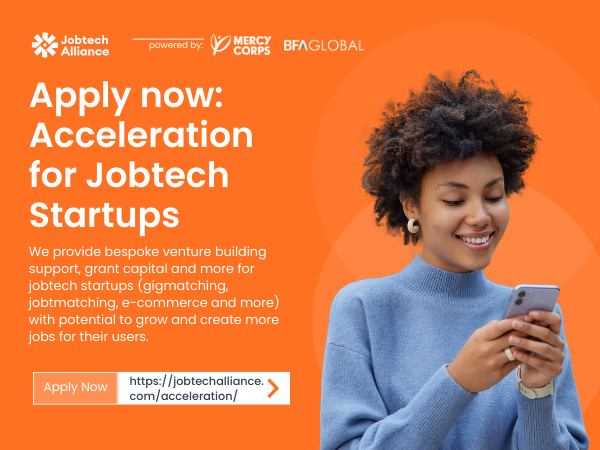By Chris Maclay
This was a big year for jobtech in Africa. Here are our top 10 trends we saw in 2022, with a few insights on what to expect in 2023…
1. Jobtech is hot. We’re seeing more and more interest in the space, and seeing ‘jobtech’ pop up everywhere in Africa and beyond. The Flip podcast in Africa has been focusing on the future of work. In the UK, efforts are being made to build an ecosystem around WorkerTech. The platform economy is going to grow in Africa, and efforts are being made across the world to make sure those platforms grow and deliver quality work.
2. African governments are getting more involved. We’re seeing more stakeholders getting involved in the emerging jobtech sector, including a range of government approaches, from promoting investment in digital work, to increasing regulation in the platform economy, to using jobtech platforms to improve labour market efficiencies.
3. Digital work as a sector continues to grow. With the world going remote, there is more opportunity for work to be distributed across Africa. After a big Time magazine expose on practices at Facebook contractor, Sama, questions were raised about what quality of work looks like in the sector (more about that here)
4. Jobtech in Africa is widening. There are more and more ways that young Africans are earning money through digital platforms. From platforms focused on influencers and the creator economy, to those which enable young Africans to mint and sell NFTs, to learn-to-earn, social games platforms, and earning opportunities in the metaverse. Questions remain about some of these sectors, but will be worth keeping an eye on in 2024 and beyond.
5. There’s increasing focus on quality of work in jobtech. The Fairwork Foundation has ramped up its scoring in Africa, with 2022 ratings available for platforms Ghana, Nigeria, South Africa, and Tanzania
6. But jobtech in Africa is still hard. It always was, maybe it will always be. Platforms find it difficult to achieve scale. Sweepsouth left Kenya and Nigeria. Safeboda left Nigeria. Skygarden faced closure before being acquired by LipaLater.

7. The global economic downturn is making things even harder for jobtech platforms (and will continue to), as we regretfully predicted in August. But while there are less jobs going around, there’s new opportunities. We’ve shared some ideas on what jobtech looks like if there are no jobs.
8. Platforms which digitize microenterprises continue to be where the money (and opportunity?) is at. There were some big raises from Wasoko, Marketforce360, Sabi and more in 2022. Will these weather the economic climate better or worse?
9. While some have asked what the equivalent of the above looks like for the services sector, as we’ve written about before, we expect to see more vertical-specific platforms emerging over the coming year, which create infrastructure for a range of services. Interestingly, just this month, Nigerian platform Orda, which aims to ‘provide the operating system to power your food business’ raised a round. More of the same next year?
10. Looking forward, expect portability of data to be a bigger theme. Learn more about why we see it as being so important here and here.
BONUS 11: The Jobtech Alliance launched a new phase including two accelerator programs for jobtech platforms across the continent. It’s not too late to apply for acceleration – applications are open through 2024 and reviewed on an ongoing basis here.

We can’t wait to see what happens in 2023!
The author is the Program Director of the Jobtech Alliance at Mercy Corps. He was previously COO of Kenyan gigmatching platform, Lynk.

0 Comments